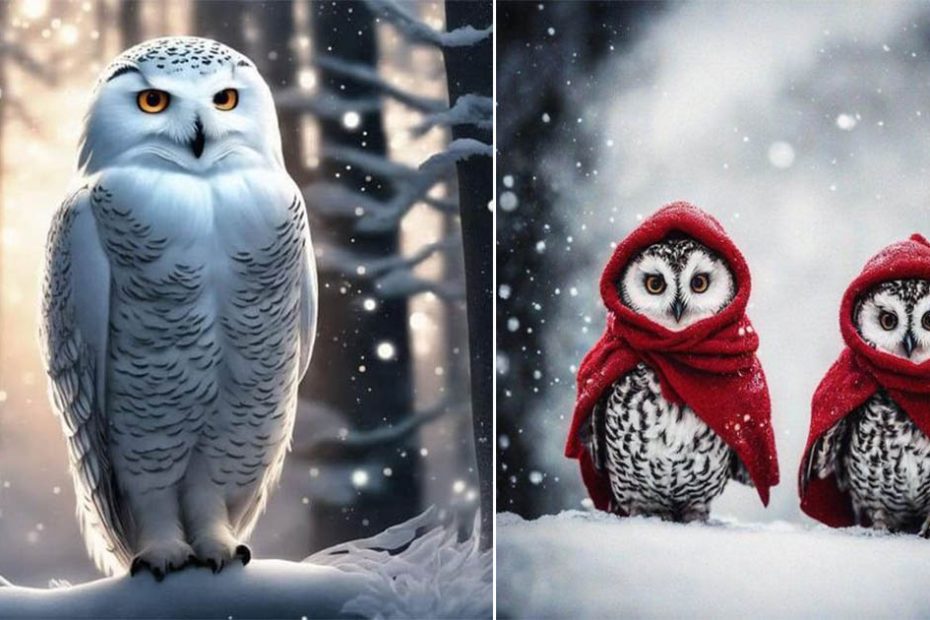
Owls, with their enchanting nocturnal habits and captivating demeanor, are amongst the most intriguing creatures that inhabit our planet. These enigmatic birds of prey have long been associated with wisdom, mystique, and a touch of the supernatural. In this article, we delve into the captivating world of owls, exploring their unique characteristics, behaviors, and the vital role they play in maintaining ecological balance.

Owls have evolved a set of remarkable adaptations that enable them to thrive in the darkness of the night. Their keen eyesight, specialized feathers for silent flight, and exceptional hearing make them efficient nocturnal hunters. These adaptations have earned them the title of nature’s silent assassins.

The owl family, known as Strigidae, comprises a diverse range of species, each with its own distinctive features. From the iconic Great Horned Owl to the diminutive Elf Owl, owls can be found on every continent except Antarctica. Their varying sizes, plumage patterns, and habitats contribute to the rich tapestry of owl biodiversity.

Throughout history, owls have been symbols of wisdom and knowledge in various cultures. The ancient Greeks associated owls with Athena, the goddess of wisdom, while Native American tribes viewed them as guardians of sacred knowledge. Owls’ mysterious nocturnal habits have also led to associations with magic and the supernatural.

Owls are skilled hunters, preying on a wide range of creatures, including rodents, insects, and even other birds. Their ability to rotate their heads up to 270 degrees enhances their field of vision, allowing them to locate prey with remarkable precision. This predatory prowess makes them essential for controlling populations of rodents and maintaining ecosystem balance.

Despite their fascinating nature, many owl species face conservation challenges. Loss of habitat, pollution, and human interference pose threats to their populations. Conservation efforts are crucial to ensuring the survival of these magnificent birds and preserving the delicate equilibrium of ecosystems they contribute to.
Owls, with their mystique and captivating presence, continue to be a source of fascination for nature enthusiasts and researchers alike. As stewards of the night, they play a vital role in maintaining ecological harmony. By appreciating and understanding these remarkable birds, we contribute to their conservation and the preservation of the intricate web of life they are a part of. The world of owls is a testament to the beauty and complexity of the natural world, reminding us of the importance of coexistence and respect for all living beings.



